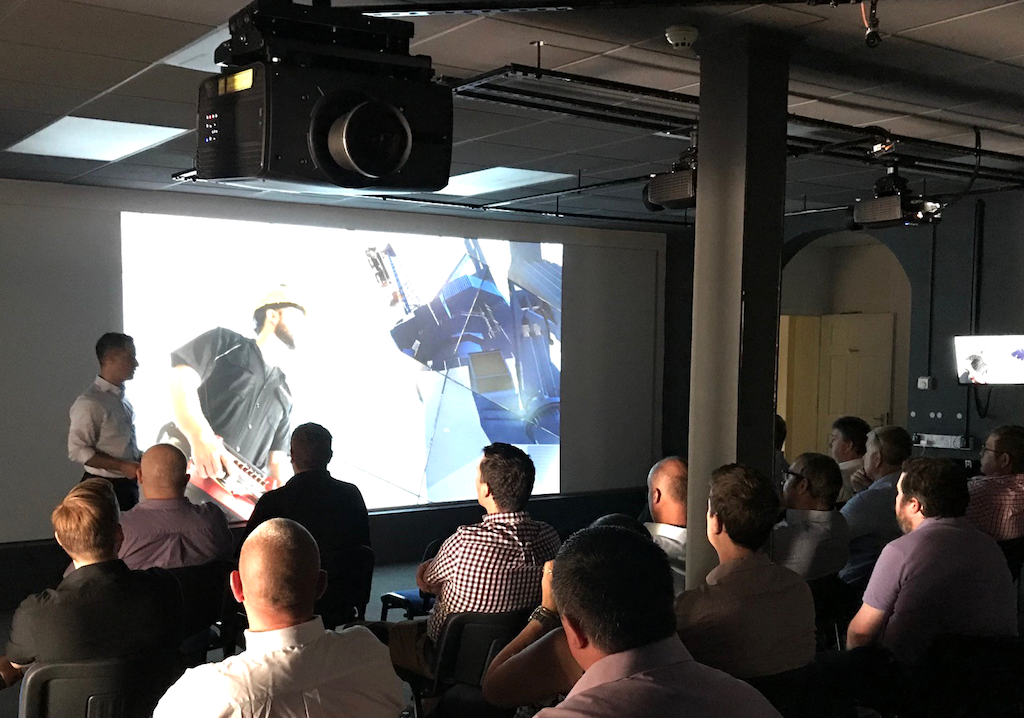UK’s CITB Details Success with Simulation Training at CM Labs Event
At a July seminar event focused on the value of simulation-based training, speakers from the Construction Industry Training Board (CITB) spoke to industry professionals about their own experience with the advanced training technology.
CITB, a levy-funded training and operator standards body for the UK construction industry, has successfully integrated simulation-based training into its existing processes, resulting in increased student practice time, reduced costs, and better reporting of skills development and qualification readiness.
The event, organized by CM Labs Simulations, developer of Vortex training simulators, was attended by crane operations and training, health and safety, fleet, and engineering managers representing contractors, heavy equipment rental firms, training schools, lift engineering firms, and municipalities from across the UK.
In an effort to improve its processes and better serve its customers, CITB purchased six Vortex Simulator units with training packs for excavators, crawler cranes, mobile cranes, and tower cranes, and four Signalperson Training Stations. Housed in a purpose-built training building and run by dedicated simulator technicians, the simulators have become a fully integrated component of the training program.
CITB’s perspective on using Vortex simulators for training is informed by the large number of apprentices it has trained to date—more than 500,000 apprentices in a wide variety of construction careers. In addition, it is responsible for maintaining qualifications and standards for the construction industry in the UK, including the Construction Plant Competence Scheme (CPCS) certification.
According to Chris Bushell, CITB Curriculum Manager, students are able to get as much as 40% more practice time at the controls because simulators do not suffer from the same down-time that’s associated with using live equipment, and training isn’t limited during winter months.
Likewise, students are able to focus on specific tasks and skills, and trainers can vary equipment configurations in ways that are too cumbersome to do with live equipment. An integrated reporting system that tracks student progression through the curriculum aids their preparation for the CPCS exam.

Industry professionals participate in Vortex Simulator Seminar and hands-on demonstration at Antycip Simulation UK offices in Oxfordshire.
Meanwhile, CITB has found that integrating Vortex Simulators has enabled the organization to increase its student-to-instructor ratio, increase availability of training, reduce fuel consumption costs, and in turn, reduce their CO2 emissions, reported Chris Blake, CITB Plant Program Manager.
“Beyond the practical benefits for students and the training organization, CITB has also discovered that their Simulator Lab is an excellent marketing tool,” said Drew Carruthers, Construction Simulator Product Manager for CM Labs Simulations. “It has increased their visibility in the heavy equipment training marketplace, and their clients are specifically requesting simulation training for the students they are sending through the program.”
He continued: “Vortex simulators are proven to provide a return on investment, save lives, and increase productivity. CITB’s experience is just one demonstration of how simulators are a training solution with benefits for everyone.”







